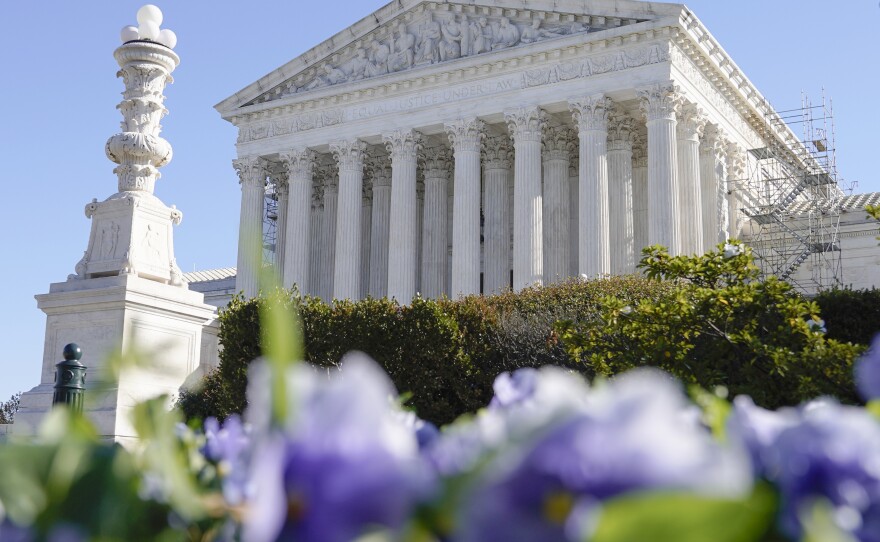The U.S. Supreme Court heard arguments Wednesday in a case that will determine whether the U.S. Department of Veterans Affairs owes a Virginia military veteran a years’ worth of education benefits.
FBI Special Agent James Rudisill claims the VA shorted him benefits he earned under separate GI Bill programs, which caused him to forfeit an offer to attend Yale Divinity School.
Rudisill served three separate times, between 2000 and 2011, qualifying him for both Montgomery and the more generous Post-9/11 GI Bill benefits. But the VA told Rudisill that he’d have to either exhaust or forfeit his Montgomery benefits in order to receive his full Post-9/11 benefit.
That’s unprecedented, said Timothy McHugh, one of Rudisill’s attorneys.
“It’s just disheartening to see the Department of Veterans Affairs not viewing the statutory scheme as favorable as it can to try and help these folks,” McHugh said.
Rudisill’s attorneys said the Montgomery GI benefits pay about $2,200 per month, while benefits under the Post-9/11 GI are equivalent to a full scholarship — with stipends for living expenses, books and fees.
Veterans with multiple periods of service can earn up to 48 months of educational benefits. But federal officials have argued that using multiple benefits at once is against federal law.
Denis McDonough, the U.S. secretary of veterans affairs, filed a brief in July 2022 responding to Rudisill’s complaint.
“There is no dispute that veterans who wish to use all 36 months of their Montgomery benefits can do so. What Congress was giving veterans was a choice; but the fact that this choice came with consequences or fewer options than Mr. Rudisill would have preferred is not at all ‘hard to fathom,’ ... that is what Congress routinely does,” it read.
Virginia’s Republican attorney general, Jason Miyares, is leading a bipartisan coalition of states urging the high court to rule in favor of Rudisill and toss a lower-court ruling upholding the VA’s decision to deny Rudisill’s additional benefits.
“[T]he Federal Circuit wrongly refused to apply the pro-veteran canon, an important interpretative tool that protects the interests of the men and women who serve in our military,” Miyares stated in a brief filed with the court, along with 39 other states. “When a statute has been “designed to protect the veteran,” this Court has “liberally construed [it] for the benefit of those who left private life to serve their country in its hour of great need.”
SCOTUS could rule on the case next spring.



